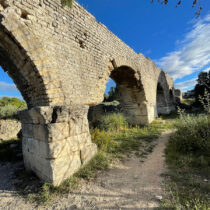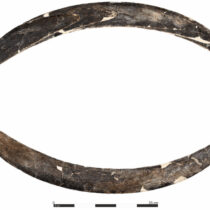Pottery is central to the study of archaeology in the Mediterranean, providing our main chronological frameworks as well as direct insights into a range of issues from ancient economies to questions of identity and agency. A working knowledge of ceramics is essential for anyone considering field-work on Greece, and the ability to assess critically publications and debates about pottery is vital to an understanding of practically any issue in Mediterranean archaeology. This knowledge can only be gained by first hand exposure to the original material.
This intensive course gives participants hands-on experience with one of the major pottery sequences in Greece. Based at the British School’s Study Centre at Knossos, it makes use of the rich holdings of the Stratigraphic Museum which include material from across the Mediterranean in all periods from the Early Bronze Age to Late Roman. Strewing and examining key pottery groups allows participants to learn the key points of identification and major debates for each period. Essential skills, like drawing or macroscopic fabric analysis, are taught in supporting workshops, and a series of lectures will introduce themes, problems and methods in the study and publication of ceramics (e.g. the chaîne opératoire and the use of statistics). The course also includes visits to local potters specializing in traditional techniques and the replication of ancient technologies.
For further information click here or download the application form, which can be found on the British School website. Those wishing to apply for a bursary should complete the relevant section of the application form.
Completed application forms and an academic reference letter should be emailed to the Knossos Curator by 21st February 2013 ([email protected]).




